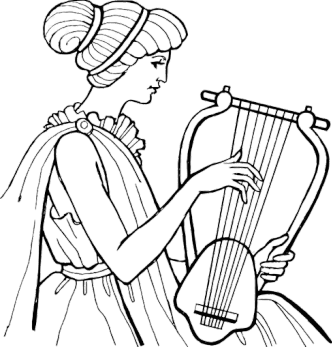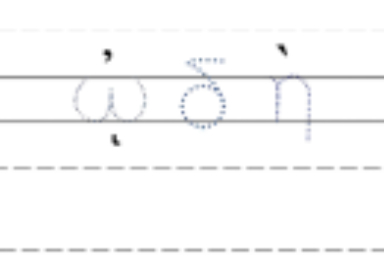Ὠιδή: A Nod to Ode!
Ancient Greek Word of the Week: Ode
I am sure you love comedies just as I do, and maybe you have heard the word tragedy that refers to ancient greek theatre, also called drama. But, have you ever heard a song that was so beautiful it felt like a poem set to music? Well today I am going to prove to you that this beautiful song, the fun that comedies create and the sadness created by an ancient greek tragedy, have a very strong common connection: they share an… ode!
The word ode comes from the ancient Greek word ᾠδή (odhí), which means song or chant. Let's see how this old word has given us not only odes but also other words like rhapsody, tragedy, comedy, and melody...
Rhapsody (ῥαψῳδία, rhapsodhía) also comes from Greek stories, where a rhapsode stitched songs together into one big, exciting piece. Now, when we hear rhapsody, we think of music or writing that is very emotional and enthusiastic, like the famous Bohemian Rhapsody by Queen.
Tragedy and comedy are words you might know from movies or books, but both started as songs and dances in ancient festivals. A tragedy (τραγῳδία, traghodía) is a sad story where things usually end pretty badly for the characters, teaching us a lesson about life or human nature. Tragedies were performed as plays and were really important to the Greeks as ways to explore tough questions about the world.
A comedy, on the other hand, ends happily and makes us laugh, showing us the funny side of life. It comes from the ancient Greek word komodhía (κωμῳδία: κῶμος (revel) + ᾠδή (ode)).
Sweet melodies also hide an ode within them: melody refers to the tune of a song - the part you hum or whistle. Just like the others, this word comes from Greek melodhía, (μελωδία: μέλος (music) + ᾠδή) which literally means choral song. Melody makes music catchy and enjoyable.
Isn’t it fascinating how a simple ancient Greek word like ᾠδή has filled our lives with so much art and expression? It feels like uncovering a little piece of history every time we enjoy a song, watch a play, or read a poem. Understanding Ancient Greek helps us grasp the full richness of these words that have traveled into our everyday vocabulary.
So, here’s to you for exploring these roots and expanding your knowledge! By learning these ancient connections, you are not just discovering any language; you are uncovering worlds of history, art, and thought that continue to shape our culture. In fact, I might even compose an ode to you all!
Questions:
1. How do odes, tragedies, and comedies from Ancient Greece influence modern entertainment like movies, music, and books?
2. Why do you think it's important to understand the origins of words like "melody" or “tragedy"?
Activity:
Create Your Own Ode: Ready to channel your inner poet? Grab some paper and pen, think about what makes you excited or happy, and put those feelings into words. Share your masterpiece with the class or make a lovely display in the classroom. Get poetic and show off what you love in a creative and fun way!
Write it Out:
Practice your ancient Greek writing with this printable worksheet:
Say it Out Loud:
Scan the QR code to hear how the word is pronounced. Listen and repeat:







